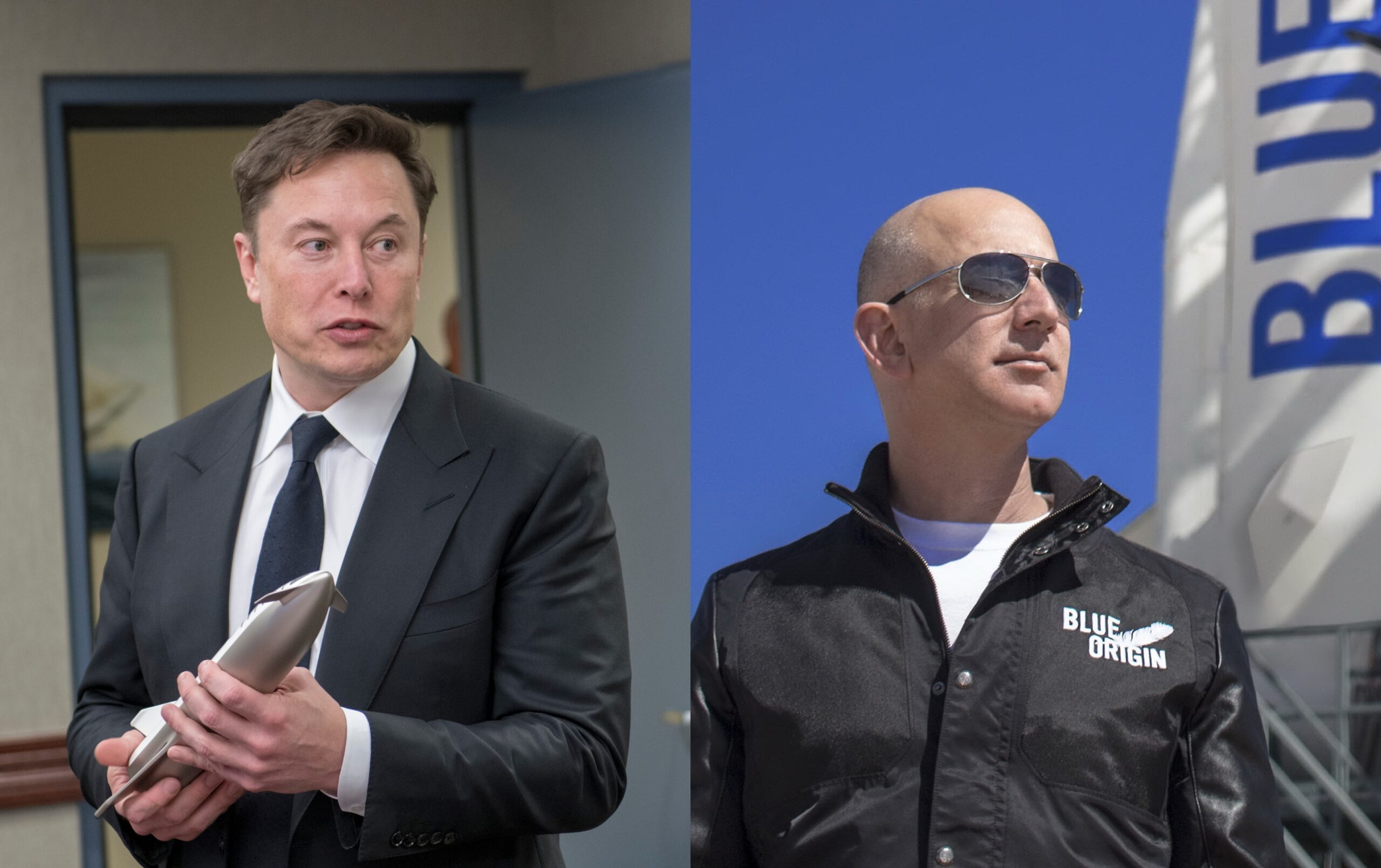Here’s how Musk (SpaceX) and Bezos (Blue Origin) will compete for future Pentagon-funded missions

The United States Department of Defense has chosen the aerospace companies SpaceX, Blue Origin and Ula (Boeing-Lockheed Martin jv) for the Pentagon's next launches. In fact, the Space Force plans to assign at least 30 national security missions by 2029
Billionaires Elon Musk and Jeff Bezos could take charge of the next space missions for US national security.
On June 13, the Department of Defense selected Elon Musk's SpaceX, Boeing and Lockheed Martin's United Launch Alliance (ULA) joint venture, and, for the first time, Jeff Bezos' Blue Origin to compete for space mission contracts for national security over the next five years.
The three companies will have the opportunity to compete for Pentagon contracts as part of the third phase of its National Security Space Launch Program. The Space Force, the military's space branch founded in 2019 that manages the launch procurement program, said it has so far chosen a small number of companies, but will look to more rocket manufacturers in the future, Quartz points out.
All the details.
FOR THE FIRST TIME BEZOS' BLUE ORIGIN WINS CONTRACT TOGETHER WITH MUSK'S SPACEX
The Pentagon's $5.6 billion National Security Space Launch (NSSL) program will see the trio Blue Origin, SpaceX and Ula compete for rocket launch contracts.
The Space Force plans to order up to 90 rocket launches under the NSSL Phase 3 program.
For the first time, Blue Origin by Amazon founder Jeff Bezos is also part of the selection. So Blue Origin will receive an initial $5 million to conduct a “capability assessment” to better understand how it will address “mission assurance” for the Army. SpaceX and ULA will instead receive just $1.5 million each as the Pentagon is familiar with how they approach their launches, the Space Force said in a statement.
FOR NOW ULA IN THE LEAD WITH 26 MISSIONS
Since 2020, SpaceX and Ula have been the main suppliers of rocket launches to the Pentagon as part of a previous program, called Phase 2. This program assigned the joint venture of Boeing and Lockheed Martin a 60% share of all missions of the Pentagon until 2027, with SpaceX taking the remainder.
Specifically, the Pentagon has awarded Musk's aerospace company 22 space missions worth $2.5 billion since 2020, while Ula has 26 missions worth $3.1 billion. But only one of these missions has been launched so far. This involved the launch of two military communications satellites by SpaceX's Falcon Heavy rocket in January 2023.
In the third phase of the program, the Pentagon sought a wider variety of companies for its space missions over the next decade. The goal is to spur greater competition in the U.S. launch industry.
SPACEX'S TIES WITH THE DEFENSE
Elon Musk's aerospace company has been strengthening its ties with US military and intelligence agencies for some time. SpaceX is in fact building a network of hundreds of spy satellites for the United States. Reuters revealed this last March. According to the international news agency report, SpaceX's Starshield unit is developing the satellite network as part of a classified $1.8 billion contract with the National Reconnaissance Office (NRO), the US agency that manages the fleet of spy satellites.
THE RACE OF BLUE ORIGIN
Blue Origin had initially hoped to compete with SpaceX and Ula from the beginning. Now the company founded by Jeff Bezos is finally in the game. The announcement brings Bezos' manned spaceflight and rocket launch company, Blue Origin, into a competitive arena it has long wanted to enter, as it seeks to bring its giant New Glenn rocket to market and boost its competitive position with SpaceX, notes Reuters .
But New Glenn has yet to reach space: the first flight is currently expected by the end of 2024.
Meanwhile, SpaceX has just completed the fourth successful Starship flight test. On June 6, the aerospace company sent its fully reusable megarocket into orbit, a successor to the Falcon Heavy, designed to travel to the Moon and Mars. This marked Starship's first successful launch, after three failures.
THE PENTAGON LOOKS AT PRIVATE INDIVIDUALS
Finally, the decision to potentially outsource national security space missions to Musk and Bezos' companies is part of a growing trend in which the Pentagon has outsourced security to Big Tech.
As Quartz again reminds us, the Department of Defense and intelligence agencies have awarded contracts to major technology companies with a total value of 53 billion dollars between 2019 and 2022.
This is a machine translation from Italian language of a post published on Start Magazine at the URL https://www.startmag.it/innovazione/ecco-come-musk-spacex-e-bezos-blue-origin-si-sfideranno-per-le-future-missioni-finanziate-dal-pentagono/ on Mon, 17 Jun 2024 08:25:52 +0000.
